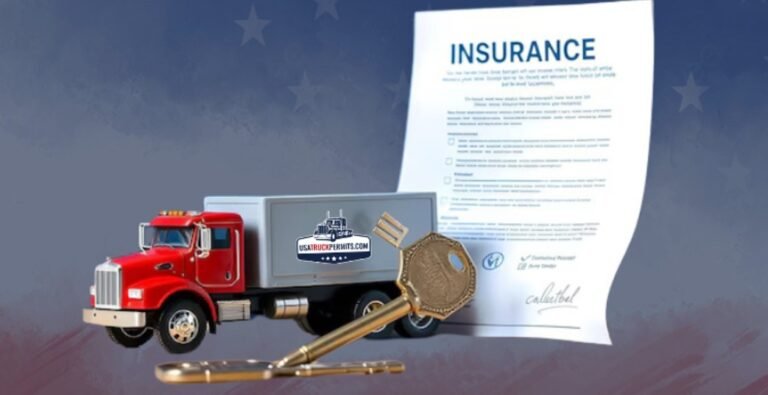Is Home Insurance Mandatory in the USA?

Is Home Insurance Mandatory in the USA?
Purchasing a home is typically one of the most significant financial decisions a person will ever make. Given the significant financial investment, it is reasonable to seek protection against potential hazards such as fire, theft, vandalism, and natural disasters. To protect your home and goods, home insurance is one of the best things you can do. The question still stands, though: Is home insurance required in the US? It’s not straightforward to give an answer. Even though the law doesn’t require it, there are times when having home insurance is necessary. This article talks about the things that determine if homeowners need home insurance, such as mortgage requirements, state rules, and the homeowners’ own personal preferences.
Home Insurance Requirements for Mortgage Holders
Laws in the United States do not mandate home insurance, but mortgage lenders often do. If you are getting a loan to buy a house, your lender will almost certainly want you to have homeowners insurance. This rule safeguards the lender’s funds in the event of house damage or loss. Given that the home serves as collateral for the loan, the investor has a financial incentive to maintain the property’s high value. If a disaster occurs, the loan could potentially lose money due to the lack of insurance.
Most mortgage lenders require homeowners insurance that fully covers the cost of rebuilding the house. Moreover, they may require liability insurance to safeguard against potential injuries on the property. Home insurance provides lenders with a sense of security as it safeguards the home and, consequently, the mortgage loan against significant risks. Don’t pay your homeowner’s insurance? Your lender may buy one for you, but it will cost more and cover less. This could lead to an increase in your insurance rates, a breach in your mortgage terms, and potentially even the loss of your home.
Homeowners Without Mortgages
For individuals who have paid off their mortgage or no longer have a mortgage, the need for home insurance may not be as clear. People without mortgages aren’t required to have homeowners insurance, but it’s recommended. Individuals without insurance face the risk of bearing the entire cost of repairing or replacing their home and belongings themselves. Disasters, fires, and thefts can happen at any time, and without insurance, they could ruin your finances.
There are still big risks that come with not having home insurance, even if you don’t have a mortgage. In some places, homeowners may be required by law to have certain types of home insurance. For instance, if you live in a place that often has natural disasters like earthquakes, storms, or hurricanes, your state law might require you to have more insurance. But these rules are very different from state to state, and if the house is paid off, renters insurance is not always required by law. You won’t get in trouble with the law for not having insurance, but if something goes wrong, you could have a difficult time paying your bills.
State Laws and Local Regulations
Renters insurance is not required by federal law, but some states and cities have rules that may affect your need. For instance, some states make it a requirement for homeowners who live in areas that often flood to have flood insurance. Homeowners in flood-prone areas can get insurance through the National Flood Insurance Program (NFIP). In certain high-risk areas, it is mandatory to obtain flood insurance if you reside in a flood zone. Most of the time, mortgage lenders in flood-prone areas require homeowners to adhere to this rule. However, some states have additional regulations that all homeowners in those areas must adhere to.
Local housing authorities in states like California, where earthquakes are common, may strongly urge (or even require) residents to purchase earthquake insurance. Homeowner’s insurance typically doesn’t cover damage from earthquakes, necessitating the purchase of special earthquake insurance. While some states may not mandate as much insurance, the specific building rules and laws in each area can influence the required coverage. Even though renters insurance isn’t required everywhere in the U.S., it’s still important for people to know the rules and laws that apply in their state or area.
Financial Protection for Homeowners
Even if you don’t need home insurance, it’s still one of the best ways to safeguard your finances. It can cost hundreds of thousands of dollars to rebuild a home. A fire, storm, or other natural disaster can destroy your house, leaving most people unable to afford repairs or replacements without insurance. In the event of damage or loss to your home, personal property coverage in homeowners insurance aids in the replacement of items such as furniture, electronics, clothes, and more.
For many, the biggest worry is the financial risk that comes with losing their house. Homeowner’s insurance mitigates this risk by covering repairs, replacements, and sometimes even the cost of temporary housing during home repairs. Additionally, liability coverage protects homeowners from potential injuries that may occur on their property. This prevents lawsuits, which could lead to costly outcomes. If the homeowner didn’t have insurance, they would be responsible for covering all these costs themselves, which could result in significant expenses.
What Does Homeowners Insurance Cover?
Homeowners insurance usually protects your home and things in a number of important ways. Some of these are:
Dwelling coverage shields your home’s construction from harm from events like fire, storms, theft, or vandalism.
Coverage for your personal property: This covers your furniture, electronics, clothes, and other valuables from damage, theft, and loss.
In the event that someone gets hurt on your land and you are found responsible for their injuries, this type of insurance will protect you. It also covers court costs and possible agreements if someone sues you.
If an insured event makes your home unlivable, additional living expenses (ALE) will cover the cost of food, lodging, and other living expenses while you are away.
These coverages are usually part of a normal homeowner’s insurance plan, but policyholders can change them to fit their needs and the risks they face. For instance, if you live in a place where earthquakes or flooding are common, you might need to buy extra security for those risks.
Alternatives to Traditional Homeowners Insurance
Traditional homeowner’s insurance is a fantastic way to protect your home, but there are other ways that people might want to look into as well. Self-insurance is another option. To do this, you accumulate savings in an emergency fund over time to cover unexpected repairs or losses. This method can help with small problems or fixes, but it’s not a beneficial idea for big problems like fires or natural disasters. It would probably cost more to replace a house or deal with a big accident without insurance than to save money by getting your own insurance.
You could also utilize government programs or private insurance policies specifically designed for high-risk areas. For example, in areas that are prone to flooding, the NFIP has policies that can help people protect their homes. In the same way, California gives affordable earthquake insurance in places that are prone to earthquakes. These options might cover some things, but they are usually not as complete as regular homeowner’s insurance, which protects against more risks.
The Cost of Homeowners Insurance
The location of the home, its value, and the chosen type of coverage all influence the costs of homeowners insurance. Tenants without mortgages are not required to have renters insurance, but many buy it to protect their finances. Homeowners insurance in the U.S. can cost anywhere from $500 to $3,000 a year, based on where you live and how much coverage you need. Property owners can shop around for the best rates and policies to fit their needs and budget.
It’s important to remember that the cost of homeowner’s insurance may seem like an extra cost, but the risks to your finances that come with not having it can be much worse. Often, the cost of insurance pales in comparison to the peace of mind that comes with knowing your home and belongings are safe.
Conclusion
In the end, while home insurance is not legally required in the U.S., it is a good idea for all homeowners and is frequently required by mortgage lenders. Homeowners insurance protects you financially against the risks of damage, loss, and liability. It is an important way to protect one of the most important purchases you’ll ever make. Even if they don’t have a mortgage, we strongly urge homeowners to get insurance to protect themselves from losing all their money in an unexpected event. Different types of security cost different amounts, but the safety they offer is priceless. Getting homeowners insurance is a beneficial way to protect your house, your






